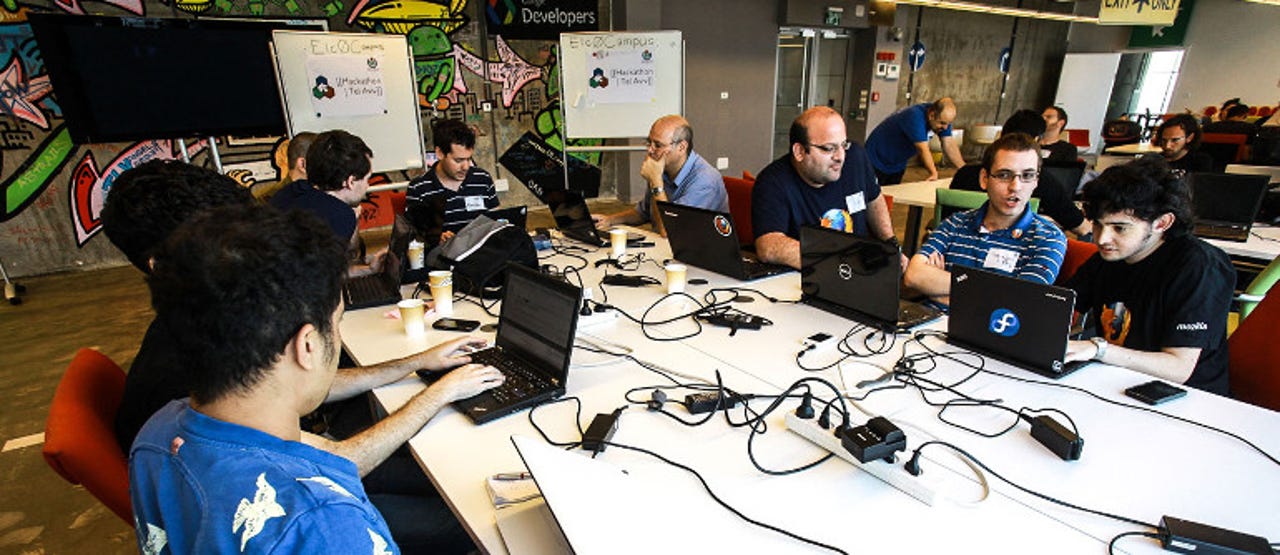A decade of Linux patent non-aggression: The Open Invention Network

Back in 2005, Linux was still under attack by SCO for imaginary copyright violations and Microsoft CEO Steve Ballmer was claiming that Linux violated more than 200 of the company's patents. Linux needed all the intellectual property (IP) law help it could get. So IBM, Sony, Phillips, Red Hat, and Novell formed the Open Invention Network (OIN) patent consortium, to defend Linux against IP attacks.

It worked.
SCO is history. True, Microsoft, while embracing Linux and open source, is also still profiting from licensing never proved patents to Android vendors, but they're no longer rattling their legal sabers at the Linux distributors or Google.
Still, while Linux has IP legal fights on its hands, OIN has been a success story.
As Eben Moglen, Professor of Law at Columbia Law School and founder of the Software Freedom Law Center (SFLC), said "OIN is the most important protection against anti-competitive patent aggression that free software and open source have ever had. The success of OIN in creating a large and rapidly-growing community of licensees, and its activist model of community patent defense, have protected programming communities and businesses using their software alike. OIN is indispensable to the ecosystem and to the safety of the clients SFLC represents."
Since its founding in late 2005, OIN has grown its community to over 1,700 participants. Its strategic patent portfolio has grown to more than 1,000 worldwide patents and applications. In parallel, the zone of patent non-aggression has evolved to include more than 2,300 software packages.
The result, Keith Bergelt, OIN's CEO, said is that "the culture norm that people are buying into now is that we agree to collaborate rather than sue each other. People sue less and talk more. Companies tend to go less to the nuclear option."
At the same time, Bergelt noted that Supreme Court patent decisions such as ALICE, have made it harder for software patent trolls to have it all their way. "Innovation has started to trump artificial restrictions on how people innovate. This new social movement of coopetition dates back to Novell's Ray Noorda. It's taken us a long time to implement, but it's finally getting there."
Noorda, Novell's founder, famously said, after buying Unix and USL (Unix Systems Laboratories) from AT&T, that rather than continue to fight with BSDI (Berkeley Software Design Inc.) over Unix IP rights violations in BSD/OS, an early, commercial BSD Unix, he'd rather compete in the marketplace than in court. The two sides settled peacefully.
Looking ahead Bergelt can even see Microsoft joining OIN at some point. "I spoke to Microsoft about joining the OIN in December 2014, but they weren't ready yet to make patent peace with Linux." Still, with Microsoft CEO Satya Nadella saying he loves Linux; offering its first Linux operating system, Azure Cloud Switch; and now offering a big data service, HDInsight on Ubuntu, he believes Microsoft will finally learn to work and play well legally with Linux.
"For now the traditional ways remain prevalent, but I see it as inevitable, as open source becomes a bigger part of their pipeline and the need for interoperability increases, that Microsoft will change. I have every hope that this CEO will carry the day," Bergelt concluded.
Want to help OIN in its next decade? OIN's community practices patent non-aggression in core Linux and adjacent open-source technologies by cross-licensing Linux System patents to one another on a royalty-free basis. Patents owned by Open Invention Network are similarly licensed royalty-free to any organization that agrees not to assert its patents against the Linux System. Your company can start the ball rolling by joining the OIN online.
Related Stories: